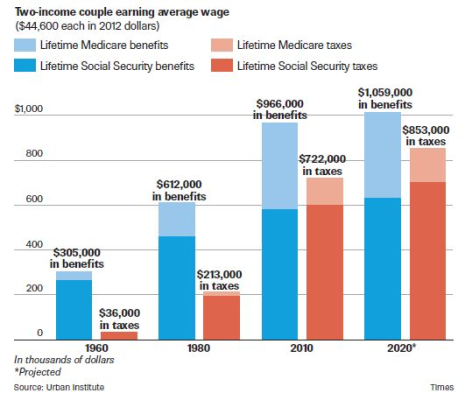flintnational
Thinks s/he gets paid by the post
Note, the following is a lot of opinion. (Okay all opinion  )
)
I don't think ACA subsidies are the real issue. The total cost of health care is the issue. If we can come up with a way to control costs, other issues become more manageable. Cost is the problem businesses face with employee coverage and the problem the government faces with the ACA, Medicaid and Medicare. Many believe none of these delivery systems are sustainable as currently designed.
While it may sound cold (not intended) I think we will need to determine how we will ration care. IMO, we cannot continue to provide unlimited Cadillac care to everyone. We simply cannot afford this noble but costly standard.
The market can allocate care through pricing or the government can do it through price controls and direct rationing. Or the two can be combined for a hybrid system.
I would support a basic robust program (but not unlimited) for everyone. The poor would receive public assistance. The basic plan would be offered by employers, the market and by the government (Medicare and Medicaid). Top hat plans would be sold in the market for those wanting (and able to pay) for unlimited or expanded coverage.
Just my two cents on the broader topic of our unsustainable health care costs.
I don't think ACA subsidies are the real issue. The total cost of health care is the issue. If we can come up with a way to control costs, other issues become more manageable. Cost is the problem businesses face with employee coverage and the problem the government faces with the ACA, Medicaid and Medicare. Many believe none of these delivery systems are sustainable as currently designed.
While it may sound cold (not intended) I think we will need to determine how we will ration care. IMO, we cannot continue to provide unlimited Cadillac care to everyone. We simply cannot afford this noble but costly standard.
The market can allocate care through pricing or the government can do it through price controls and direct rationing. Or the two can be combined for a hybrid system.
I would support a basic robust program (but not unlimited) for everyone. The poor would receive public assistance. The basic plan would be offered by employers, the market and by the government (Medicare and Medicaid). Top hat plans would be sold in the market for those wanting (and able to pay) for unlimited or expanded coverage.
Just my two cents on the broader topic of our unsustainable health care costs.
Last edited:

